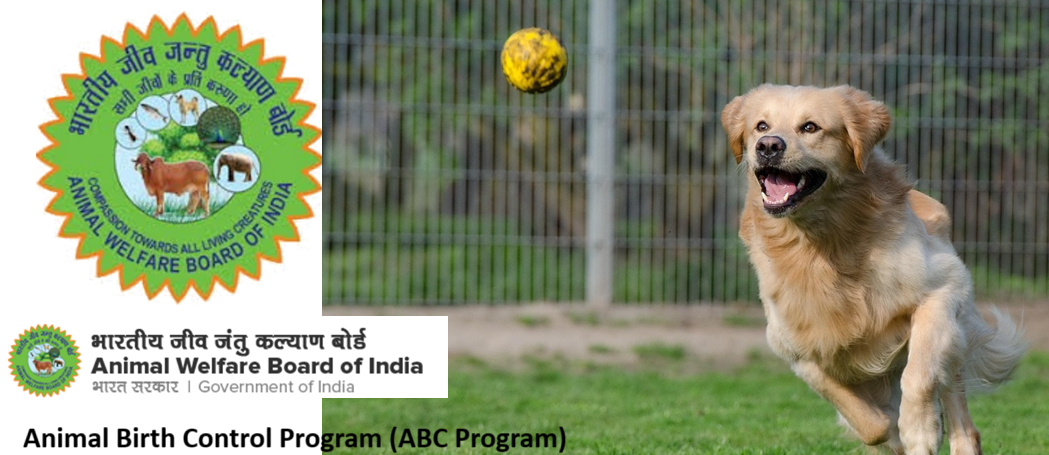
A Humane Revolution: How India’s ₹2,500 Crore ABC Program Is Saving Lives and Streets
From Streets to Safety – India’s streets are home to millions of stray dogs. While many are friendly and harmless, some pose risks due to overpopulation, disease, and lack of care. For years, the country struggled to find a humane and effective way to manage this issue. But now, thanks to the Supreme Court’s revised order and the nationwide rollout of the Animal Birth Control Program ((ABC Program) , things are changing, for the better.
This blog explains what the ABC Program is, how it works, who’s responsible, and how citizens can help build a safer, kinder future for both people and dogs.
What Is the ABC Program and Why Does It Matter?
The Animal Birth Control Program, also known as ABC, is India’s official method for managing stray dog populations. It follows a simple, humane process:
- Capture: Stray dogs are caught by trained teams.
- Sterilise: Dogs undergo surgery to prevent breeding.
- Vaccinate: They are vaccinated, especially against rabies.
- Release: After recovery, dogs are returned to the same area they came from.
This method helps control the dog population over time, reduces the risk of rabies, and avoids cruel practices like mass culling or permanent confinement. It’s backed by science, supported by animal welfare laws, and now reinforced by the Supreme Court’s latest ruling.
The ABC Program is not just about dogs, it’s about public safety, community harmony, and ethical responsibility.
Supreme Court’s Landmark Order: A Humane Shift
On August 22, 2025, a three-judge bench of the Supreme Court, Justice Vikram Nath, Justice Sandeep Mehta, and Justice N.V. Anjaria, revised its earlier directive on stray dogs. The previous order had called for permanent sheltering of all stray dogs in Delhi-NCR, which sparked backlash from animal rights groups and civic activists.
The new order is more balanced and compassionate. It says:
- Stray dogs must be sterilised and vaccinated under the ABC Program.
- Only rabid or dangerously aggressive dogs should be kept in shelters.
- Feeding stray dogs in public places is banned, but designated feeding zones must be created in every ward.
- Citizens and NGOs can adopt stray dogs, but once adopted, they cannot return them to the streets.
Most importantly, the Court extended this policy to all states and union territories, making it a nationwide mandate.
Who’s Responsible for Making It Work?
Several government departments are now working together to implement the ABC Program:
- Municipal Corporations: They run sterilisation drives, set up feeding zones, and manage shelters.
- Animal Welfare Board of India (AWBI): Provides guidelines, funding, and monitors humane treatment.
- State Animal Husbandry Departments: Oversee veterinary care and coordinate with local bodies.
- Ministry of Health: Supports rabies control and vaccination efforts.
- NGOs and Animal Shelters: Partner with the government to carry out ABC operations and care for dogs.
The Supreme Court has also asked all states to submit progress reports and infrastructure plans, ensuring accountability and transparency.
Budget, Shelters & Citizen Support
To make the ABC Program successful, funding and infrastructure are key. Here’s what’s happening:
- The central government has allocated ₹2,500 crore for ABC programs, shelter construction, and rabies control.
- Municipal bodies are building shelters for up to 5,000 dogs in Delhi-NCR alone.
- Shelters can be government-run or managed by registered NGOs, but they must follow AWBI standards and be monitored via CCTV.
Citizens and dog lovers can also play a role:
- Feeding: Allowed only in designated zones or inside shelters with permission.
- Donations: People can donate money, food, or supplies to registered shelters.
- Adoption: Anyone can adopt a stray dog through proper channels, but must commit to lifelong care.
This shared responsibility between government and citizens is what makes the ABC Program truly powerful.
From Streets to Safety, A Kinder Future: What You Can Do
India’s stray dog issue is complex, but the ABC Program offers a clear, humane path forward. Whether you’re a policymaker, animal lover, or concerned citizen, here’s how you can help:
- Support sterilisation drives in your area.
- Report rabid or aggressive dogs to local authorities.
- Feed responsibly in designated zones.
- Donate or volunteer at nearby shelters.
- Adopt, don’t abandon and spread awareness about responsible pet care.
The Supreme Court’s order is more than a legal directive, it’s a call to action. By working together, we can create safer streets, healthier communities, and a more compassionate society.
Also read – New Stray Dog Policy: Supreme Court Humane Order, Government Action & Citizen Role
Stay informed with the latest news and updates – only on Rapido Updates.